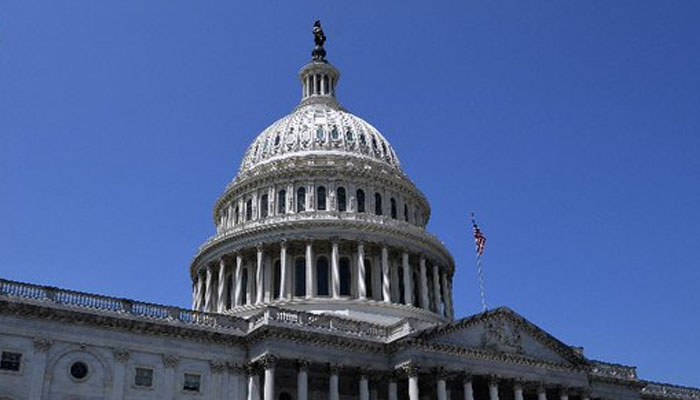What's next as US Senate passes stopgap funding bill to stop shutdown?
US House of Representatives enacts stopgap budget package to prevent government shutdown during holidays
The US Congress passed a stopgap financing agreement to temporarily prevent a government shutdown in a rare display of bipartisanship which comes after the US Senate, on Wednesday, November 15, cleared a stopgap budget package and forwarded it to President Joe Biden for his signature before the weekend deadline.
The House of Representatives enacted a stopgap budget package the day before the Senate vote in an attempt to prevent a government shutdown during the holidays.
Though the deal would only keep federal agencies operating for an additional two months, it did stop the harm that would have affected millions of workers before of Thanksgiving and Christmas, so the fear of a government shutdown isn't entirely eliminated.
Three days ahead of the Friday night deadline, the Senate's 87-11 vote ended the third budget showdown in Congress this year. Now, the deal will finance the US government through the middle of January.
“No drama, no delay, no government shutdown,” said Democratic Senate Majority Leader Chuck Schumer ahead of the vote.
In addition to the impending threat of a partial shutdown that would have prevented almost four million federal employees from receiving their salaries, the US Congress has endured months of turmoil that have frequently pushed Washington to the verge of defaulting on its more than $31 trillion in debt.
Pitching a last-ditch "continuing resolution (CR)," House Speaker Mike Johnson had widespread bipartisan support, which was unusual considering the difficult process of selecting a new speaker and the weeks-long paralysis that followed in the lower house of the US Congress.
Following Kevin McCarthy's removal by the far-right faction of the Republican Party, Johnson took up the position.
Now that the measure extending funds for military construction, veterans benefits, housing, urban development, agriculture, the Food and Drug Administration (FDA), energy and water programmes, and transportation has been forwarded to Biden for his signature, it will become law until January 19.
On February 2, however, funds for all other federal programmes, including US military, will run out.
“At this point, it’s important for the Congress to come together, Democrats and Republicans, on a bipartisan path forward to fully funding the government,” Democratic House Minority Leader Hakeem Jeffries told reporters.
“It should be obvious to anyone who is watching that House Republicans are unable to govern on their own,” he added.
This occurred at the same time as conservative Republicans, who control a majority in the US House, expressed their displeasure with the recent agreement and declared they would retry to limit government spending when the present budget runs out.
-
Kylie Kelce breaks silence on 'beef' with Dwayne Wade
-
Suspect kills six across Florida before taking his own life
-
Savannah Guthrie shares sweet childhood video with missing mom Nancy: Watch
-
Piers Morgan praised by Ukrainian President over 'principled stance' on Winter Olympics controversy
-
Halsey's fiance Avan Jogia shares rare update on wedding planning
-
Las Vegas father shoots daughter's boyfriend, then calls police himself
-
'Fake' sexual assault report lands Kentucky teen in court
-
Woman arrested months after allegedly staging husband’s murder as suicide












